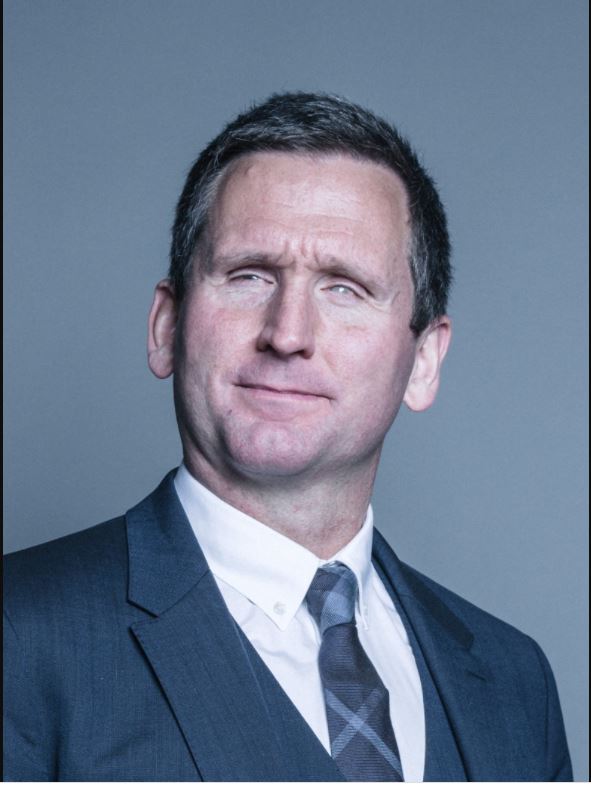Financial inclusion - A blog from Lord Holmes of Richmond MBE
Several years ago, I served on the House of Lord’s Select Committee on Financial Exclusion. We were tasked with considering financial exclusion and access to mainstream financial services and our work resulted in twenty-two recommendations to the government. Financial services should enable and empower, and I want us all to have “the ability to manage day to day financial transactions, meet expenses, manage a loss of earnings and avoid or reduce problem debt.”i
Some progress has been made. In particular, I welcome that one of our recommendations – a clearly designated Minister for Financial Inclusion – has not only been met but exceeded. Guy Opperman is the UK’s first Minister for Financial Inclusion and John Glen, economic secretary to the Treasury is responsible for financial services including financial inclusion.
Unfortunately, despite this unique cross departmental commitment, welcome initiatives laid out in six detailed Financial Inclusion Policy Forum reports and a transformed Money and Pensions Service, we still have some way to go before eradicating the, so called, ‘poverty premium’ and improving financial inclusion in this country.
The Financial Services Bill, currently making its way through Parliament, can deliver the change we still need and I have proposed several amendments to the bill to address a range of issues. I have proposed amendments that would make important steps towards creating a statutory duty on financial inclusion – adding the duty to both the FCA and the Bank of England’s Financial Policy Committee.
[1] Definition of financial inclusion from Select Committee on Financial Exclusion Report, Tackling financial exclusion: A country that works for everyone? Report of Session 2016-17 – published 25 March 2017 – HL Paper 132
Many of my other amendments are designed to address problems such as the horrendous situation faced by mortgage prisoners, and the scammers preying on people in debt and at their most vulnerable by impersonating legitimate debt advice charities and services. An amendment regarding the provision of debt advice was an attempt to draw attention to the importance of and need for financial education.
These problems existed before the pandemic but the FCA’s financial lives survey found that Covid-19 has had a profound impact on peoples financial situations. Between March and October 2020, the number of people with low financial resilience increased by 3.5 million, from 10.7 million to 14.2 million. Those with low financial resilience now account for a quarter (27%) of adults. And while exact figures of those financially excluded are hotly contested – possibly around 3 million – the precise figure is not as significant as the fact that this is a lot of people struggling financially, excluded from basic financial services, bank accounts, savings and pensions. This access is – or should be – the “bedrock of citizenship”. Being financially excluded is not only devastating for the individuals involved but also puts a great burden on the welfare state. It should matter to us all.
The pandemic has also accelerated moves to digital payments and online banking and, whilst positive in some ways, this trend could exacerbate the risks to those who depend on cash. A recent review on access to cash, has shown that unless steps are taken, we could lose the nations cash infrastructure within a year. One of my amendments proposed a review on cashback without purchase – something that should now be possible if we are no longer subject to EU payment services regulations and would offer a valuable alternative source of cash without charge.
The Financial Services Bill is now at report stage in the Lords and my sincere hope is that the government will seriously consider the intention behind all my amendments. We need to act on this most important human, citizen right to be financially included.

Guest blog by Lord Holmes of Richmond MBE. Lord Holmes is a passionate advocate for the potential of technology and the benefits of diversity and inclusion. He campaigns for more accessible environments for disabled people and has conducted an independent review for the government that made recommendations on opening up public appointments to disabled people. In Parliament he has been a member of many House of Lords Select Committees incl. Financial Exclusion, Digital Skills, Artificial Intelligence and Democracy and Digitial Technologies. Read more about him here.
To know more about The House of Lords, visit their Twitter and LinkedIn pages.
To read more from #OpenFinanceInclusion Campaign Week check out our landing page here.


